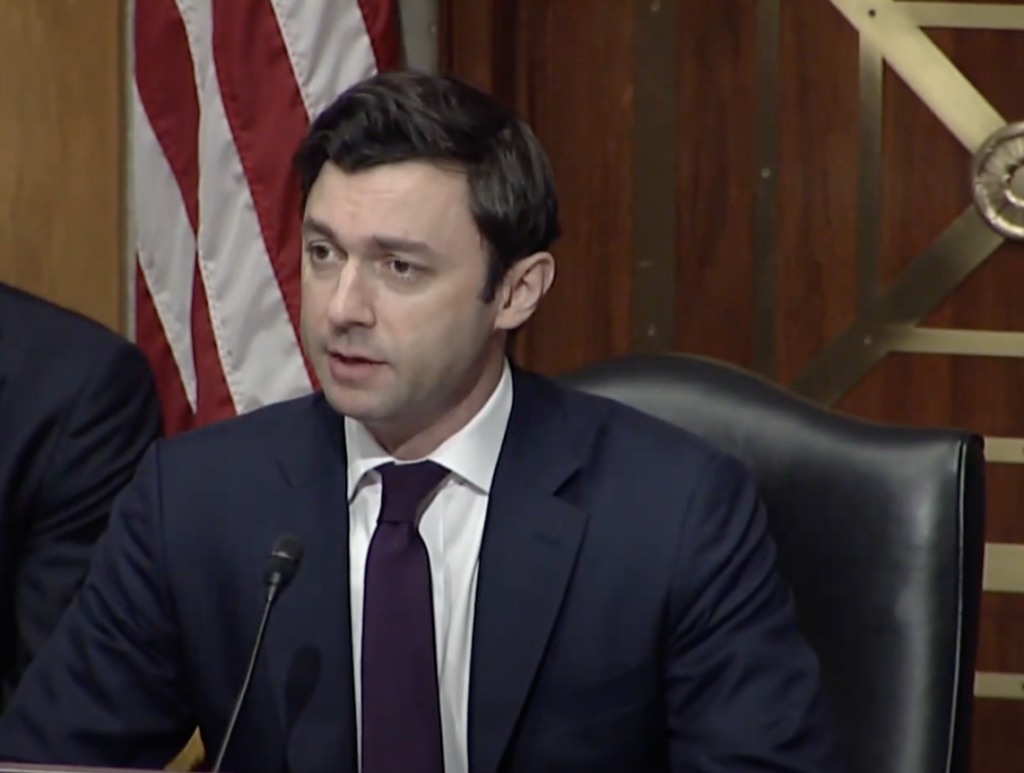
ATLANTA – Federal prisons are failing to prevent and properly investigate sexual abuse of female prisoners, according to a new report released Tuesday by the U.S. Senate’s Permanent Subcommittee on Investigations.
Male employees abused female prisoners in at least two-thirds of federal prisons that housed women in the past decade, the investigation found. The abuse was often persistent and ongoing – and it often went unaddressed.
“This situation is intolerable,” said U.S. Sen. Jon Ossoff, D-Ga., the subcommittee’s chairman. “Sexual abuse of inmates is a gross abuse of human and constitutional rights and cannot be tolerated by the United States Congress. It is cruel and unusual punishment that violates the Eighth Amendment to the United States Constitution and basic standards of human decency.”
“We found that BOP [the federal Bureau of Prisons] has failed to prevent, detect, and stop recurring sexual abuse, including by senior prison officials,” Ossoff added.
He gave the example of a prison in Dublin, Calif., where both the warden and chaplain sexually abused female prisoners. The prison was even known as the “rape club” by both employees and women incarcerated there.
At the Dublin facility, the officer in charge of ensuring compliance with the federal Prison Rape Elimination Act was himself abusing prisoners, Ossoff noted.
At a prison in Florida, all female prisoners were transferred out two days before the required prison-rape inspection, ensuring that they could not report their abuse to the auditors and allowing the prison to be deemed compliant with federal law.
Three formerly imprisoned women told the committee they did not report ongoing abuse by prison employees because they feared retaliation and had little faith anything would be done.
Carolyn Richardson, who lost her vision while in prison and needed special medical treatment, was abused by a prison guard tasked with taking her to and from appointments.
“I was in an extremely vulnerable state, physically, mentally and spiritually due to my medical condition, and [the guard] preyed on this fact,” she testified.
Richardson said the prison guard brought her foods and medicines she could not otherwise obtain.
“I felt utterly powerless. I was a vision-impaired prisoner who was relying on [him] for basic life needs and transportation to medical appointments,” she went on. “I was terrified that he or other BOP staff would retaliate against me or take away my privileges. … I thought that the officers would stick together.”
Briane Moore described how she looked at her prison sentence for dealing drugs as a chance to start her life over. She tried to be on her best behavior so that she could get a transfer to a prison closer to her home and young daughter. A prison officer took advantage of this.
“He told me that if I didn’t follow his orders, he would interfere with my transfer. He then raped me,” Moore testified. “I knew he had the power to prevent me from being transferred to a prison closer to my family, closer to my daughter. … I had no choice but to obey.”
Moore and the other women described the long-lasting effects of the sexual assaults on their mental health.
“I’m here today five years later, and I want you to know that I’m still suffering,” she said. “This has changed the course of my life forever. I’m a different person physically and emotionally because of this. I’m still in mental health treatment. I’ve lost trust in the system.”
Officials from the Department of Justice (DOJ), where the BOP is housed, described what had gone wrong and how they plan to fix it.
DOJ Inspector General Michael Horowitz said prison camera systems should be improved, noting prison staff are able to take advantage of their knowledge of locations that lack cameras to assault prisoners.
Horowitz also testified that many employees smuggled drugs and other contraband like cell phones into the facilities to groom prisoners for future sexual abuse. He said the BOP should finalize a policy first proposed in 2016 that would amp up searches for contraband among employees.
Horowitz also recommended that Congress upgrade the penalty for smuggling contraband into a prison from a misdemeanor to a felony.
Both Horowitz and BOP Director Colette Peters said their departments have increased resources for investigating sexual assaults and have made the issue a top priority.
Peters, who took over the BOP in August, said the bureau has increased the number of employees dedicated to investigating sexual abuse allegations and improved reporting procedures. It has set up a dedicated email address where people can confidentially report abuse.
Peters said the bureau now requires all reports of sexual abuse to be sent to its Office of Internal Affairs and not just the prison’s warden so that the bureau can more accurately track the problem and look for patterns of abuse, including by people like wardens and chaplains.
Despite the recent attention and efforts to address the problem, the investigation found there is still a serious backlog of cases at the Bureau of Prisons, including hundreds of sexual abuse allegations.
“BOP must address its backlog of outstanding cases involving employee misconduct,” said Sen. Ron Johnson, R-Wis., the subcommittee’s ranking minority members. “Delays in accountability — particularly for individuals who have committed sexual violence — are unacceptable.”
This story is available through a news partnership with Capitol Beat News Service, a project of the Georgia Press Educational Foundation.
